Search Results
Showing results 1 to 20 of 55
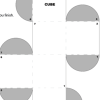
Fold a Crystal
Source Institutions
Rocks are made of minerals, and minerals often have crystal shapes. In this fun activity about geometry in nature, learners create their own crystal shapes out of paper.
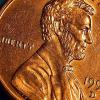
Rusty Penny
Source Institutions
In this easy chemistry activity, learners submerge pennies in different liquids (water, lemon juice, vinegar, liquid hand soap, salt water, and baking soda mixed with water) to observe which best clea
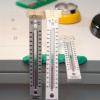
Hot Equator, Cold Poles
Source Institutions
In this activity, learners use multiple thermometers, placed at different angles, and a lamp to investigate why some places on Earth's surface are much hotter than others.

Hold a Hill
Source Institutions
In this outdoor activity, learners investigate the relationship between the slope of a trail and soil erosion.
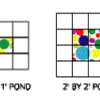
Paths and Ponds
Source Institutions
In this activity, learners use squares to figure out how many border tiles are needed to enclose different areas.

Beaded Braids: Investigating Patterns & Ratios
Source Institutions
In this activity learners create patterns of hair beads.
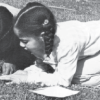
Bean Bugs
Source Institutions
In this outdoor biology and math activity, learners estimate the size of a population of organisms too numerous to count.
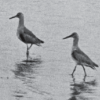
Flocking for Food
Source Institutions
In this outdoor beach activity, learners use a variety of "beaks" (such as trowels, spoons or sticks) to hunt for organisms that shore birds might eat.
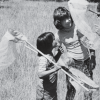
Animal Diversity
Source Institutions
In this outdoor activity, learners find, count and compare as many different kinds of animals as they can find in two different areas: a managed lawn and a weedy area.
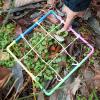
Counting With Quadrants
Source Institutions
Millions of organisms can live in and around a body of water.

Frijolitos
Source Institutions
Esta actividad enseña la proporción y razón por hacer que los aprendices hagan "ensaladas" que combinan tres tipos de frijoles en tres combinaciones diferentes.

Terrestrial Hi-Lo Hunt
Source Institutions
In this outdoor activity, learners search for the warmest and coolest, windiest and calmest, wettest and driest, and brightest and darkest spots in an area.

Sensory Hi-Lo Hunt
Source Institutions
In this outdoor activity, learners use only their senses to to find the extremes of several environmental variables or physical factors: wind, temperature, light, slope and moisture.
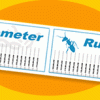
Measure Yourself in Nanometers
Source Institutions
In this activity, learners will be able to measure themselves in nanometers. A nanometer is a billionth of a meter, a unit of measurement used in nanotechnology.

Model the Sun and Earth
Source Institutions
In this activity, learners make scale models of the Sun and Earth out of paper mache.
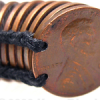
Penny Rubbing
Source Institutions
In this art-related activity, learners make a coin rubbing—a process similar to what archeologists may do with ancient artifacts. This activity can be used in connection with a history or art lesson.

OBIS Oil Spill
Source Institutions
In this outdoor activity, learners simulate an oil spill using popcorn (both oil and popcorn float on water), and estimate the spill's impact on the environment.
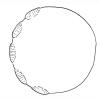
Elephant Foot
Source Institutions
Using a real-size sketch of a baby elephant's footprint, learners estimate, measure and record the width (diameter) and outside edge length (perimeter or circumference) of the footprint.
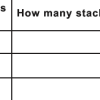
Piles of Pennies
Source Institutions
In this coin math activity, learners sort and stack 100 (one hundred) pennies into piles of 5 pennies each, 10 pennies each, and 20 pennies each.
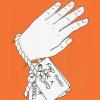
Gaming in the Outdoors
Source Institutions
In this set of outdoor games, learners increase their awareness of the outdoor environment by going on a scavenger hunt and an out-of-place hunt.
